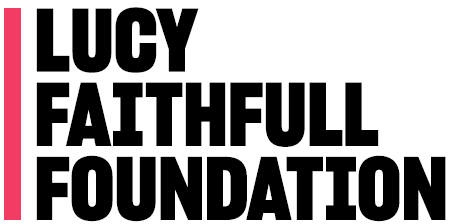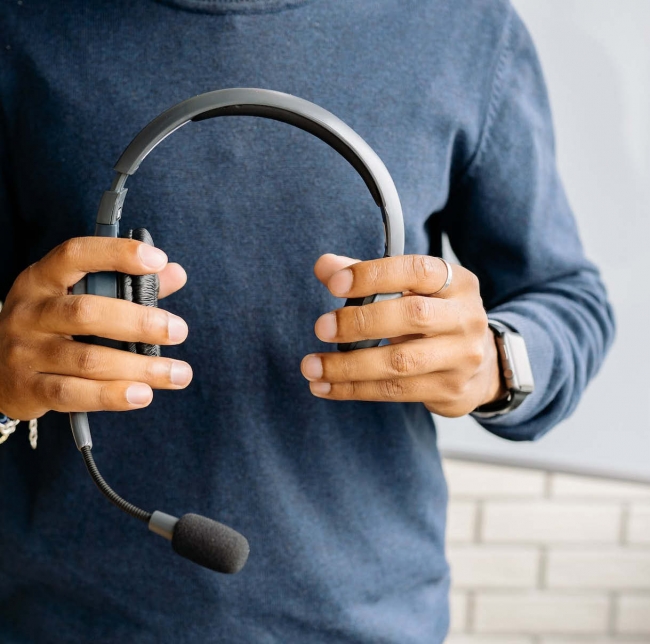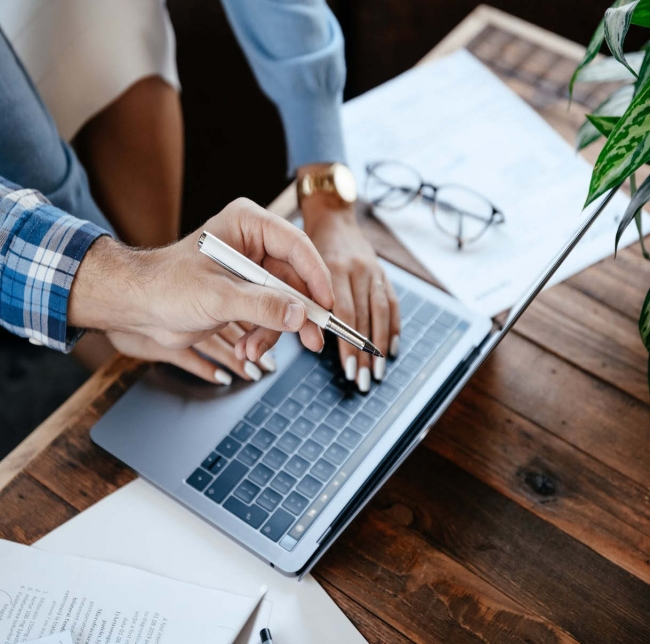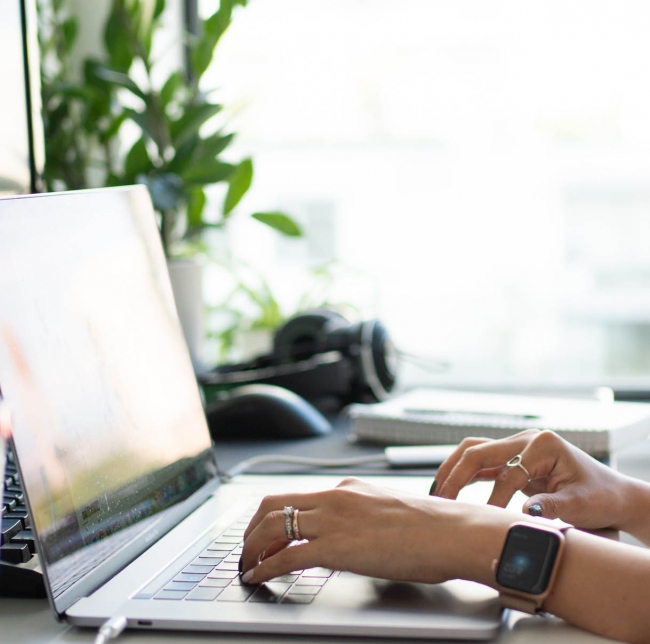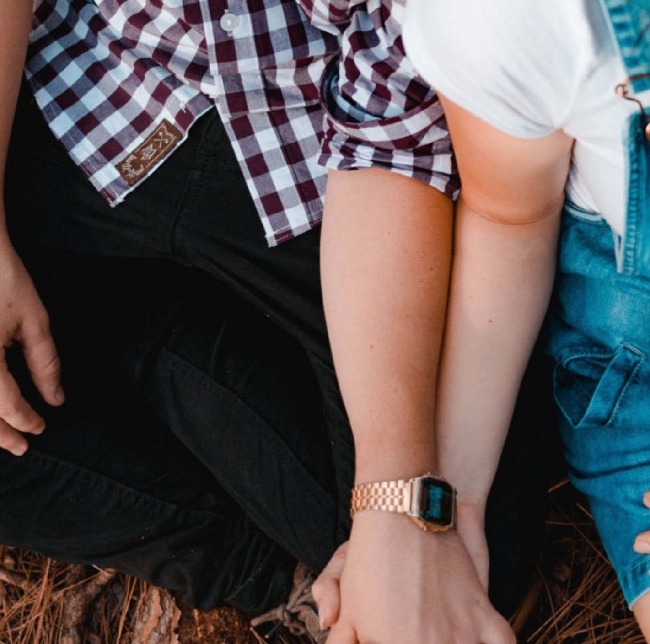Time to talk about porn: the link between viewing legal adult pornography and online child sexual abuse
Opinions about legal adult pornography are often polarised. Some people claim it is a self-centred activity that impairs sexuality with a partner and fosters unhealthy sexual attitudes. Others say it is a modern way of expressing sexuality.
But through our work, we hear a different side of the story. Every year, we speak to hundreds of men who tell us that legal adult pornography contributes to problems in their intimate and wider relationships, their social and work lives, and their view of themselves. Most significantly, we hear that legal adult pornography sometimes contributes to them viewing illegal sexual images of under-18s.
And this problem is only increasing.
That’s why today we are proud to publish the 8th in our series of Faithfull Papers all about the potential impact of legal adult pornography and its relationship with online child sexual abuse.
Everything, everywhere, all at once
“Over the last few decades the world of pornography has significantly changed, in both what’s available and how easily it is accessed,” says Dr Alexandra Bailey, a forensic psychologist at the Lucy Faithfull Foundation and one of the authors of the paper.
“Pornography in magazines bought on the high street is usually mild compared to the limitless array of content available online today. For example, 45% of Pornhub scenes have been found to include at least one act of physical aggression, including gagging, slapping or demeaning women,” added Dr Bailey.
Does watching adult pornography increase the likelihood of viewing sexual images of under-18s?
“This is an ongoing debate,” says Fiona Moran, forensic psychologist and clinical lead for the Lucy Faithfull Foundation Scotland and also an author of the paper.
“But for the majority of people who use our services to help stop viewing sexual images of under-18s, legal adult pornography appears to be a significant contributing factor in their pathway towards offending,” she said.
“Ultimately, our key focus is child protection. So, we will recommend the actions necessary to ensure that children are kept safe from harm,” added Fiona.
What are we seeing on the Stop It Now helpline?
In 2023, 881 people who accessed support through our anonymous Stop It Now helpline reported problematic use of legal pornography – which is nearly 10% of contacts concerned about their online behaviour.
And, since our Stop It Now helpline opened in 2002, the number of contacts we have received from people concerned about people viewing illegal sexual images of under-18s use has increased year on year, with a particular increase since the pandemic.
“Contacts to our helpline and secure email went up 36% from 3,944 in 2019/20 to an average of 5,391 contacts a year since the first COVID-19 lockdown,” said Dr Bailey.
What are we learning from our other projects?
Since 2015, we have campaigned to deter online child sexual abuse. Most recently we have innovated with partners to create a first of its kind first-of-its-kind chatbot and warning message to intervene with internet users making problematic or illegal searches and signpost them to the Stop It Now helpline.
Through all of this work, we are learning more about the link between legal adult pornography and viewing illegal sexual images of under-18s.
The paper also draws from our wealth of experience providing support through our clinical programmes and draws from an extensive body of external research. This research and experience also influenced Stop It Now’s Get Help modules to help prevent offending.
Why does viewing legal adult pornography use sometimes escalate to viewing illegal sexual images of under-18s over time?
Dr Bailey thinks that this could be partly explained, for some people, by the Coolidge effect.
“This is where individuals experience a decrease in sexual interest when repeatedly exposed to the same sexual stimulus,” said Dr Bailey. “Some people will seek out more extreme images to achieve greater sexual gratification,” she said.
“There are other rewards, such as the feelings of anticipation and excitement because of dopamine and adrenaline being released by the body,” Fiona added. “Sometimes this is referred to as the ‘slot machine effect’,” added Dr Bailey.
Is this porn addiction?
“The people we work with often talk about their experience of adult pornography use and their view that its use has become a problem,” said Dr Bailey.
“Regardless of the word being used, when people talk about pornography use becoming a problem, they feel that it has negatively impacted them, their lives and perhaps even the people around them,” commented Fiona. “They also report returning to this behaviour on an ongoing basis despite knowing that it has negative impacts on their lives.”
“This same pattern is in other behaviours, including those where it feels easier to label the behaviour as an addiction, for example alcohol or gambling. Clients will often label it as an addiction or feeling like an addictive cycle of behaviour, this allows us to avoid making a judgement,” she added.
“It doesn't matter what the label is, people’s experiences are most important,” added Dr Bailey.
Should people who view illegal sexual images of under-18s stop using legal adult pornography?
“Legal adult pornography can affect people differently, at different times and in different contexts,” says Fiona. “As practitioners, we are motivated to identify under what circumstances pornography use increases a particular individual’s risk of offending, and how to reduce that risk and protect children.”.
“We will discuss with people whether their continued use of legal adult pornography is possible without it leading to offending further,” said Fiona.
Some people decide that they want to stop viewing pornography altogether, whereas others choose to continue to use adult pornography but want some help and advice to identify how to use it being aware of the possible consequences.
“Many people we support develop an internet safety plan which helps them consider the factors at play when they use pornography and what factors might increase their risk of viewing sexual images of under-18s,” said Fiona. “Sometimes these plans include limiting porn use,” she added.
What can be done to limit pornography use?
“One of the tasks we have in our clinical practice when someone shares that their legal adult pornography use is linked to viewing sexual images of under-18s is to understand what their use looks like, how they feel about their use, and what impact this might be having on their life,” said Fiona.
“Often the people we work with are keen to speak about this as they have not been able to verbalise this to anyone before. However, professionals can sometimes feel unease about asking someone about their pornography use as it can feel intrusive. This is why have drawn up questions for practitioners to ask those who report having a problematic relationship with pornography, to help fully understand the context they are working within,” she added.
Highlighting the impact
As an organisation, we want to fully understand the mechanisms at play when someone moves from legal pornography to offending behaviour, and the individual differences that make particular individuals more likely to cross the line from legal to illegal images online.
“We need to acknowledge that for some people telling them just to ignore pornography or to stop viewing it dismisses the difficulties they are experiencing and the challenges of changing any long-term behaviours,” said Dr Bailey.
“But by educating others on the potential negative impacts of viewing adult pornography and working with those whose pornography use has escalated to offending online, we can better protect children and prevent online child sexual abuse – before it happens.”
Donate
To help us continue our vital work, click here.
Read more of our research
To read more of our Faithfull Papers, click here.
Share with your networks
X(Twitter)
Sign up for news & updates
Fill in our newsletter form hereTo support our work to protect children, donate today.
Donate today